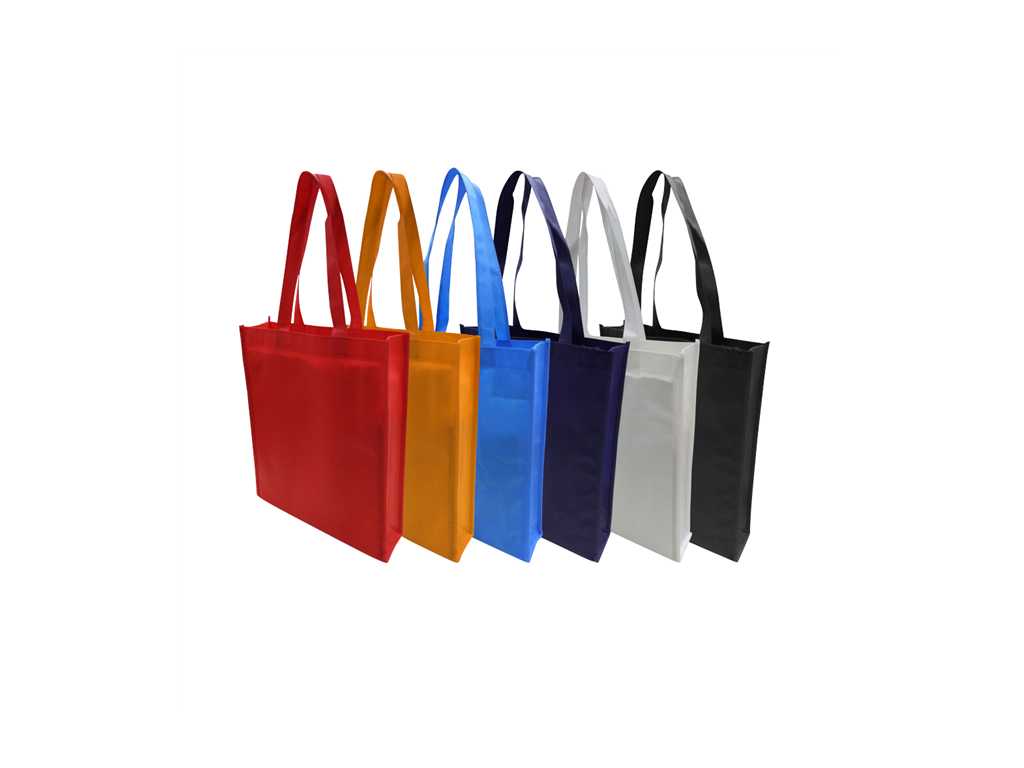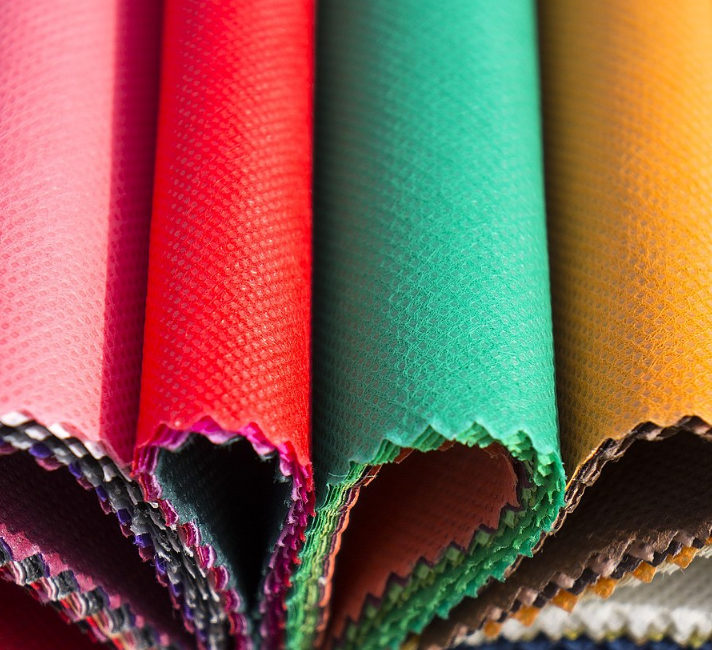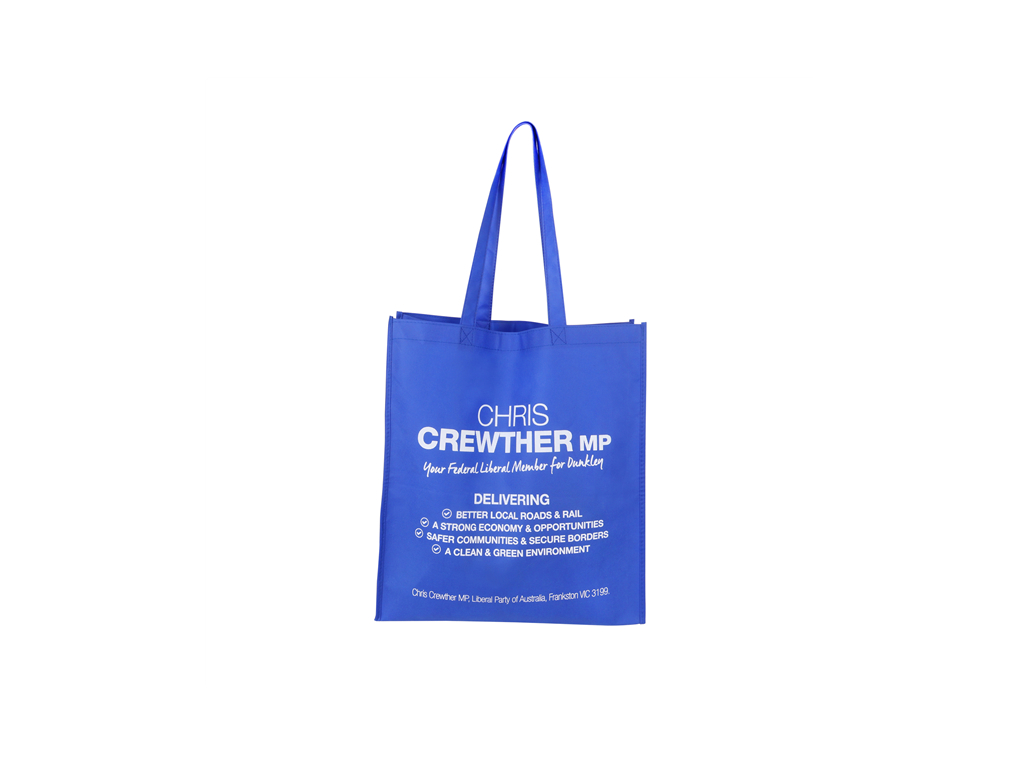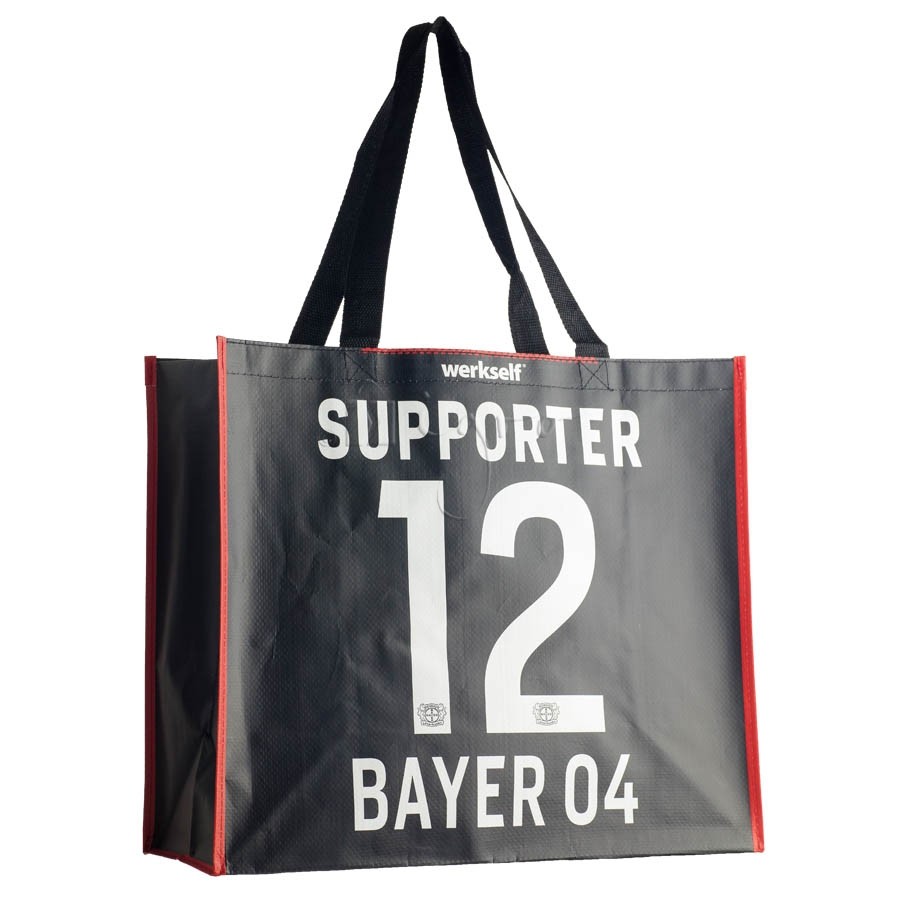Top 4 benefits of Non-Woven Bag

Introduction
As people have an increasing sense of environmental protection, people are more likely to use environment-friendly materials in a different areas.
One of the examples is the popular use of electricity in the automobile area. More daily, for the benefits of Non-Woven Bagwe, can see that the Non woven bags are taking place of plastic bags.
Increased recycling rates and a desire for environmentally friendly products are driving the growth of the non-woven fabric market. These materials can be recycled more than plastics or paper, meaning they’re also friendlier to our environment in general.
The Non-woven Fabrics Industry will reach an estimated $32 billion by 2024 due largely thanks to its affordability as well as ease when manufacturing.
In this article, we will make Overall guidance about Non-Woven bags, including their material, benefits, types, and the difference between Non-Woven bags and Woven bags.
If you are hesitating to make your decision, this article can help. Just reading on.

1. What is the material of Non-Woven Bags?
There are four common types of the nonwoven materials
We will introduce these four types of material in the following content.
2.Airlaid.
3.Dryland.
4.Wetland.
(1). Spunbound/Spunlace
The Spunbond non-woven fabric is a kind of high quality, durable and environmentally friendly material made from polypropylene. This process creates webs that can be easily glued together by hot rolling techniques .Because of the simple process, large output, non-toxic and harmless to the human body. Therefore, it is widely used in various fields such as sanitary materials and so on.
(2). Airlaid
Airlaid Non-woven fabric is produced by the Airlaid technology, which is a new method to produce nonwoven fabric by air webbing and different consolidation methods with wood pulp fiber as the main raw material.
The Airlaid fabric is a revolutionary new material that can make the paper more sustainable. The patented technology behind it all starts with an open-celled wood pulp fiberboard structure, which has been transformed into single strands of natural fibers by being expanded through airflow before finally being reinforced into cloth-like structures!
(3). Dryland
Dryland nonwoven fabric is a nonwoven fabric made of staple fibers that are formed into a “fiber network” by the dry method and then reinforced by mechanical, chemical, or thermal processing methods.
It has been applied in a wide range of areas and is one of the earliest categories of nonwoven fabric. The network consolidation technology includes the hot bonding method (including hot melt method, hot rolling method), mechanical network consolidation method (including needle punching method, jet solid network method); “chemical bonding method” (including impregnation method, a spraying method, foam method, printing method, solvent method).

(4). Wetlaid
Non-woven fabrics are made from chemical fibers, inorganic materials, and other types of fiber by “wet forming”. bonding methods including “chemical bonding” or thermal Bonder can be formed into a non-woven fabric.
It has higher strength, softness, and elasticity than commonly used paper. The main advantage of the wet nonwoven production process includes fast production speed, low density of product surface, and uniform and fine structure.
Such fabric has been applied in both industrial areas and medical areas, such as the manufacture of Medical hygiene materials, interlinings, and functional materials for industrial use……
2. The benefits of Non-Woven Bags
(1). Material
The material of Non-woven bags is a web or sheet of polypropylene fibers. Through the methods of the machine, thermal power, or chemistry, people bond the polypropylene fibers together. They are flat, porous sheets that are made directly from separate fibers.
Nonwoven polypropylene is a very practical fabric. It’s applied in the manufacturing of Non-Woven Bags because it’s strong and lightweight. From the users, they can carry the Non-Woven Bags everywhere easily. From the perspectives of business owners. Lightweight means an inexpensive cost for shipment.

(2). Eco-Friendly
Such advantages can be figured out when you compare the Non-woven polypropylene bags and Plastic bags. Non- woven bags are reusable, recyclable. Also, they are easy to be cleaned.
The element of Nonwoven polypropylene bags mainly includes 5-Type recyclable plastic. They can be reused and recycled to prevent pollution on land as well as when made into new ones.
From the energy perspective, As we mentioned above, Non-woven bags are not like Woven bags.
The ways we use to produce Non-woven are more energy-saving than the ways we use to manufacture Woven bags. For the latter one, we need to knit and weave the materials from threads to clothes.
If the woven bags can be accepted more widely, we believe that the pollutants can be decreased to a significant level.
(3). Affordable
One of the reasons for its affordability is the efficiency of manufacturing. Unlike Woven bags, Unwoven bags can be produced in a shorter time and are inexpensive price. In addition to its lightweight, the cost of the shipment can be decreased. So in a word, the cost for a batch of Non-woven bags will be lower than the cost for a batch of woven bags.
You should also face the problems that different factories have different levels of processing, how to find a reliable manufacturer for the woven bag would be an important problem.
(4). Good way for advertisement
For business promotion, a Nonwoven polypropylene bag is a good choice.
They can be produced in different colors and printed with your company logo. If you would like to be more creative, you can provide a reversible Nonwoven polypropylene bag, putting two patterns on the two sides of the bag.
Non-woven bags are very proper for daily uses like shopping. When people carry the bags with your company logo and walk outside, the goal of promotion has been perfectly achieved. It would be better if you can make the design of the bags more charming.

3. Different between Non-woven bag and Woven bag
We have to introduce some differences between these two kinds of bag. In this part, we will further discuss their difference.
These two kinds of the bag have their unique benefits and characteristics. Having a clear understanding of their difference enables you to make a decision properly.
We should know that both woven and non-woven bags are eco-friendly because the material they use is recycled and reusable.
The only difference comes from the way they are built.
(1). Woven Bags
The fabric we use for the manufacturing of Woven bags is made by weaving. The individual threads are joined to make one piece of material. Such a process will be repeated until we get the whole strong piece of cloth, which is the material of a woven bag.
There are many weaving styles for Woven bags. Which one you choose to use depends on what you want to bags to be used for. The common weave styles are twill, satin weave, and plain weave. No matter which kind of weaving style you choose, a woven bag can provide you following advantages:
(1) Flexible but strong enough to maintain their shape
(2) Reusable
(3) Easy to clean, suitable for machine washing
If you choose Woven bags, you should also face some disadvantages:
(1) Easy to catch bacteria and germs, that’s why woven bags are not proper for the goods like meat and vegetable, and other things which will contact with the surface directly.
(2) Without water resistance.

(2). Non-Woven Bags
Nonwoven bags are more common in our daily life as compared to the woven bags. They can provide almost the same advantages as woven bags. But why they are more common, because they are more affordable. For companies and organizations, the customized nonwoven bag has been the perfect promotional gift, which makes a great difference to the establishment of brand identification. The advantages you can get from Non woven bags include:
(1) Reusable
(2) Water absorption
(3) Affordability
Also, you have to face the disadvantages
(1) Shorter durability
(2) Can not be washed
(3) Catch bacterial and germs
We can see that both woven and nonwoven bags have the same property: reusable. Such property enables them to take place of the plastic.
4. Different type of Non-woven bag
(1).D Cut Non-Woven Bag
D cut Non woven bags can be carried on your shoulder when you take them outside. Nowadays it’s the most common type of Non woven bag in shops and stores. As part of the bag, The handle of the D-cut bag is flexible and soft, but it would not be ripped easily.
(2). W Cut Non-Woven Bag
These two cut type Non woven bags are similar. The only difference is their handle. Just like the plastic bags which were commonly used in the store, nowadays both W cut Non-woven bags and D cut Non-woven bags have been popular in the places like supermarkets and grocery stores.
(3). Loop Handle Non-Woven Bag
With the expanded base gusset and the loop handles, you can keep the goods inside the bags stable when you are in movement. That also provides a more beautiful appearance for the bags. Other than the increased stability, Loop Handle Nonwoven Bags are more durable. You do not need to worry about the breakage.
5. Maintenance of nonwoven fabrics
The following points should be noted in the maintenance and collection of nonwoven bags
(1) Wash them to keep them clean and prevent the breeding of moths and bacteria.
(2) When storing in new seasons, it shall be washed, ironed, dried, and sealed in a plastic bag, and placed flat in the closet. Ventilation and dust removal are necessary.
The closet should be put into anti-mildew, and anti-moth tablets, to avoid the breeding of mold and insects.
(3) Facing pilling, do not pull them out strongly. You have better use scissors to cut them off, to avoid the break of the structure, which is the unrecoverable damage to the Non-woven bags.
Conclusion
In this article, we have shared some content about Non woven bags, including
What is the material of Non-Woven Bags
The benefits of Non-Woven Bags
Difference between Non-woven bags and Woven bags
Different types of Non woven bag
Maintenance of Non-woven bags
After reading this article, you may have a clear understanding of the Non-woven bags. If you still have other questions, please feel free to contact us through email or telephone, we will reply as soon as possible. Thanks for your reading!
